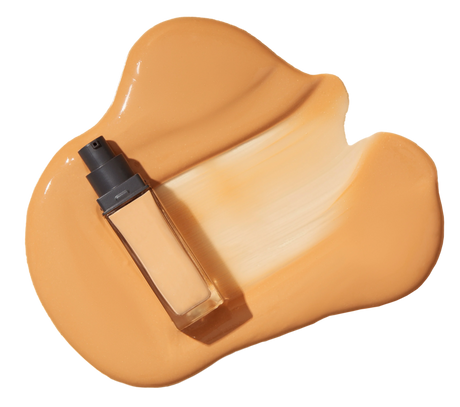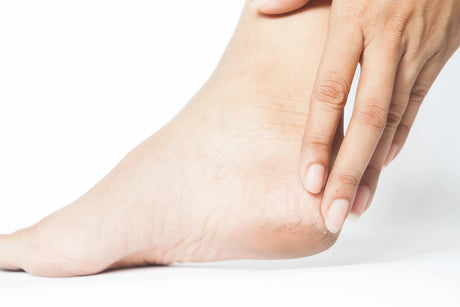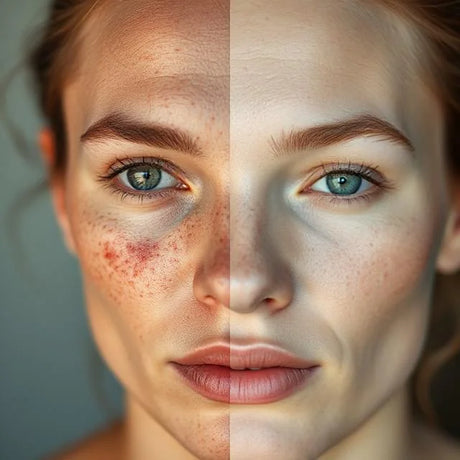Ultimate Guide to Vitamin D Deficiency, Treatment and Supplements in Pakistan.
Vitamin D deficiency is a common concern worldwide, including in Pakistan, due to limited sunlight exposure, poor dietary intake, and lifestyle factors. Vitamin D is a crucial nutrient that helps the body absorb calcium, which is vital for maintaining bone health and immune function. Unfortunately, many people do not get enough Vitamin D, leading to a range of health issues like weak bones, fatigue, and a compromised immune system. If you're experiencing symptoms of Vitamin D deficiency, this article will guide you through its causes, treatment options, supplements, and how Vitamin D works alongside Vitamin K for optimal health.
Why is Vitamin D Deficiency Common in Pakistan?
In Pakistan, the hot summer months provide plenty of sunlight, but several factors contribute to widespread Vitamin D deficiency:
- Indoor Lifestyle: People in urban areas often stay indoors due to work, school, or other commitments, reducing their sun exposure.
- Climate: While the sun is often strong, some people avoid sunlight due to the harsh weather conditions or cultural factors like covering up for modesty.
-
Dietary Habits: Many traditional Pakistani diets lack Vitamin D-rich foods such as fatty fish, fortified dairy products, and egg yolks, contributing to the deficiency. As a result, Vitamin D deficiency is widespread, and many individuals experience issues such as weak bones, muscle pain, and frequent illnesses.
What are the Symptoms of Vitamin D Deficiency?
Recognizing the symptoms of Vitamin D deficiency is essential for early treatment. Common symptoms include:
- Fatigue and general tiredness.
- Bone pain and discomfort in the joint.
- Muscle weakness, especially in the arms and legs.
- Mood changes, including feelings of depression.
- Hair loss or thinning.
- Frequent infections or colds due to a weakened immune system.
- Slow wound healing
If you experience these symptoms, it is advisable to consult a healthcare professional for a blood test to confirm your Vitamin D levels.
How Does Vitamin D Work in the Body?
Vitamin D helps the body in several essential ways:
- Bone Health: It aids in the absorption of calcium and phosphorus, which are needed to build and maintain strong bones.

- Immune System Function: Vitamin D helps regulate the immune system, reducing the risk of infections.
- Mood Regulation: Some studies suggest that Vitamin D has a role in improving mood and preventing depression.
Without sufficient Vitamin D, the body cannot absorb enough calcium, which can lead to bone loss, weakened muscles, and a higher risk of fractures. Hence, maintaining an adequate level of Vitamin D is crucial for overall health.
How to Treat Vitamin D Deficiency?
Managing Vitamin D deficiency involves a combination of lifestyle changes, dietary adjustments, and supplementation. Here are some effective treatment options:
1. Sun Exposure
How Much Sun Exposure Is Needed for Vitamin D?
Vitamin D is produced naturally by the body when the skin is exposed to sunlight. Aim for about 10-30 minutes of sunlight exposure several times a week. The duration depends on your skin type, geographical location, and the time of year.
- In Pakistan, try to get morning sunlight (before 10 AM) or late afternoon sunlight for optimal Vitamin D synthesis.
- Remember to wear sunscreen if you are exposed to the sun for longer periods to protect your skin from harmful UV rays.
2. Vitamin D-Rich Foods
What Foods Are High in Vitamin D?
While sunlight is a natural source of Vitamin D, you can also incorporate Vitamin D-rich foods into your diet, such as:
- Fatty fish like salmon, mackerel, and sardines.
- Fortified dairy products like milk and cheese.
- Eggs, especially the yolk.
- Fortified cereals and plant-based milk (like soy or almond milk)
Adding these foods to your diet can help boost your Vitamin D levels naturally.

3. Vitamin D Supplements
When Should You Take Vitamin D Supplements?
For people who are unable to get enough Vitamin D from sunlight or food, supplements are an effective option. The most common form of Vitamin D supplements is Vitamin D3 (cholecalciferol).
-
Dosage: The recommended daily intake of Vitamin D varies:
Adults typically need 600-800 IU daily, but in cases of deficiency, higher doses may be prescribed by a doctor.
For those over 70 years of age, a daily intake of 800-1000 IU is recommended. - How to Take: Since Vitamin D is fat-soluble, it is better absorbed when taken with a meal that contains fat.
What Role Does Vitamin K Play with Vitamin D?
Why Should You Combine Vitamin D with Vitamin K?
Vitamin D works together with Vitamin K to enhance calcium absorption and prevent calcium buildup in the arteries. While Vitamin D helps your body absorb calcium, Vitamin K ensures that calcium is properly deposited in bones and teeth, rather than accumulating in soft tissues like arteries.
- Vitamin K2 activates certain proteins that help bind calcium to the bone matrix, ensuring that it stays where it's needed.
- Vitamin K1 plays a role in clotting, but Vitamin K2 is the form most involved in bone health.
Taking Vitamin D with Vitamin K2 can support bone density and reduce the risk of arterial calcification.
Vitamin D Supplements Available in Pakistan
If you’re looking for Vitamin D supplements in Pakistan, here are some of the best options. These supplements are easily available at pharmacies and online stores in Pakistan.
- CaC 1000 Plus Vitamin D Supplement: Rs. 493.00.
- CHOLCE-D Ampoule - Vitamin D3 200,000 IU Supplement: Rs. 350.00.
- Tablets with Vitamin D + K2 | Strong Bones & Heart Health – HBM: Rs.1,800.00
How to Take Vitamin D Supplements for Maximum Effectiveness?
What is the Best Way to Take Vitamin D Supplements?
Then taking Vitamin D supplements, follow the recommended dosage and take them with a meal to ensure better absorption. If you have any underlying health conditions, always consult your healthcare provider for personalized advice.
Conclusion
Vitamin D deficiency is a significant health concern in Pakistan, especially due to limited sunlight exposure and dietary habits. With the right combination of sun exposure, dietary changes, and supplements, you can easily manage and overcome this deficiency. By also incorporating Vitamin K2 into your routine, you can ensure better calcium absorption, improved bone health, and overall better health outcomes. If you're experiencing symptoms of Vitamin D deficiency, consult your doctor for a proper diagnosis and treatment plan. For high-quality Vitamin D supplements, check out Dermatologists.pk for the best deals and options tailored to your needs.









